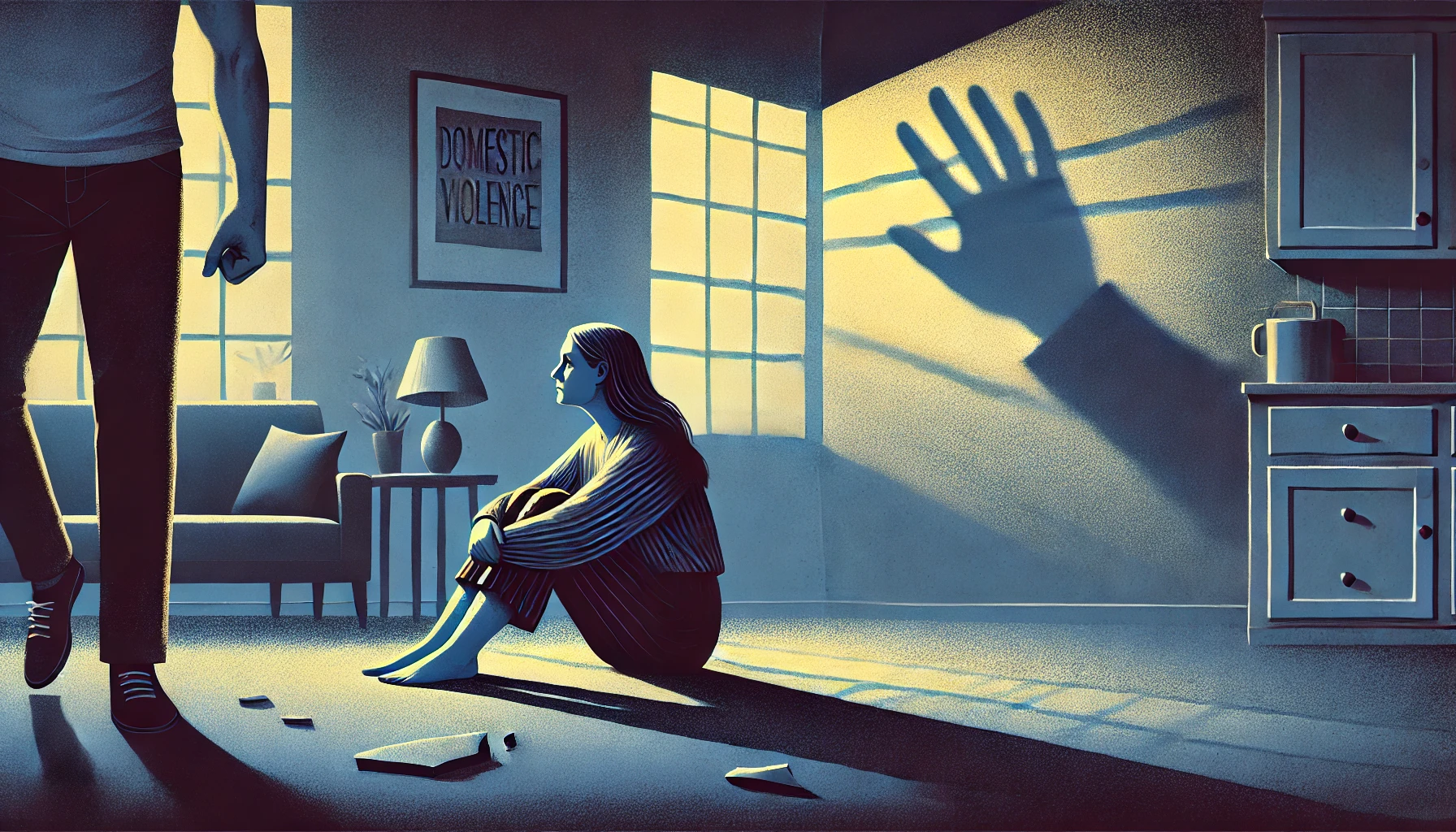In a sobering revelation, the Garda National Protective Services Bureau (GNPSC) reports an alarming 8% increase in domestic violence incidents in Ireland in 2023, with over 54,000 cases reported. This upsurge not only highlights the pervasive issue of domestic violence but also underscores a shifting societal attitude towards reporting and confronting these hidden crimes.

Domestic violence illustration, imagined by DALL-E
Detective Chief Superintendent Colm Noonan emphasizes a positive change in public perception and intolerance towards domestic sexual and gender-based violence. His message is clear: such violence, lurking in homes and communities nationwide, is unequivocally unacceptable. The Garda’s commitment to listening, protecting, and supporting victims resonates strongly, especially during the United Nations’ 16 Days of Activism against Gender-Based Violence campaign.
Detective Superintendent Sinéad Greene attributes the increase in reports to growing public trust in the Garda. This trust is crucial, as the holiday season often exacerbates the isolation and fear experienced by abuse victims, making it difficult to seek help. The Garda’s proactive stance offers reassurance: they are ready to intervene and provide protection, even in the absence of a criminal complaint.
The Garda’s efforts extend beyond immediate response. Collaborations with the HSE and the Irish Pharmacy Union have established over 1,000 pharmacies as safe havens for abuse victims. The Domestic Abuse Risk Evaluation Tool, now operational nationwide, enables frontline officers to accurately assess risk and classify incidents, ensuring appropriate protective actions.
A disturbing aspect of gender-based violence, female genital mutilation (FGM), is also under the Garda’s scrutiny. Despite being illegal in Ireland since 2012, Detective Superintendent Ian Lackey notes ongoing challenges in combating FGM, deeply rooted in cultural practices. The Garda Síochána’s awareness-building campaign, in collaboration with organizations like Akidwa, aims to educate and prevent FGM among the estimated 10,000 affected women in Ireland.
Human trafficking, closely linked to gender-based violence, is another front in this battle. Detective Superintendent Derek Maguire leads investigations into organized crime groups exploiting men and women in the sex trade. Acknowledging the complexities of prostitution and trafficking, the Garda offers support and avenues for those seeking to escape these coercive situations.
In conclusion, the rise in domestic violence reports in Ireland is a double-edged sword. It reflects a grim reality but also signals a society increasingly unwilling to turn a blind eye. The Garda’s multifaceted approach, combining protection, prevention, and partnership, offers a beacon of hope. It’s a clarion call for victims: you are not alone, and help is at hand.
Seeking Help: A Guide for Victims of Domestic Violence in Ireland
If you or someone you know is a victim of domestic violence in Ireland, it’s crucial to understand that you are not alone and that help is readily available. Here is a guide on the steps you can take and the resources you can access:
- Immediate Safety: If you are in immediate danger, call An Garda Síochána at 999 or 112. The police are trained to handle domestic violence situations and can provide immediate protection.
- National Freephone Helpline: Women’s Aid operates a 24/7 National Freephone Helpline at 1800 341 900. This service offers confidential advice, support, and information to women experiencing domestic violence.
- Online and Text Support: Women’s Aid also provides an online chat service at womensaid.ie, available during mornings and evenings. For individuals who are deaf or hard of hearing, a text service is accessible at 087 959 7980.
- Men’s Aid: For male victims of domestic violence, Men’s Aid can be contacted at 01 554 3811. They provide specialized support and information tailored to the needs of male victims.
- Local Support Services: Safe Ireland lists 38 domestic abuse services located in towns across Ireland. These services offer local support and can be a crucial resource in finding shelter and counselling.
- Dublin Rape Crisis Centre: Available at 1800 778 888, this centre provides support for individuals who have experienced rape, sexual assault, or other forms of sexual violence.
- Support for Male Victims: For men facing domestic abuse, a dedicated helpline is available at 1800 816 588, offering targeted support and guidance.
- Government Support: The ‘Still Here’ campaign by the Irish government provides resources and information for victims of domestic violence. This initiative aims to raise awareness and offer comprehensive support.
- Legal Advice: Consider seeking legal advice regarding your situation. Lawyers specializing in family law can provide guidance on protective orders, custody issues, and your legal rights.
- Confidentiality and Empathy: All these services maintain strict confidentiality. They understand the sensitivity of domestic violence situations and offer empathetic, non-judgmental support.
Remember, reaching out for help is a brave and critical first step towards safety and recovery. No one should suffer in silence, and these resources are here to support you through these challenging times.
